Published
7 years agoon
.jpg)
As the possibility rises that North Korea will be able to strike the continental United States with a nuclear missile, the debate in America shows signs of radicalization and polarization.
Former state officials are said to have begun working on a crude compromise to conclude a peace treaty. They are neglecting the fact that, even if North Korea were to end its deployment of inter-continental ballistic missiles (ICBMs), America acknowledges that the rogue country possesses short- to mid-range nuclear missiles that are able to hit Japan and South Korea, and its human rights issues are on the back burner.
On the other side of the argument, regardless of the fact that North Korea could damage neighboring countries like South Korea in a war even before it deploys its ICBMs, there is an increase in the number of hawkish influences claiming that regime change should be brought about through military intervention.
These discussions are both founded on “America First” assumptions, so it’s unsurprising that they find President Donald Trump’s favor. It’s not inconceivable that he could start by pursuing the former, and, if it ends in failure, switch courses to the latter.
Furthermore, Mr. Trump himself recently told prominent Congress member Lindsey Graham that “the Kim Jong Un regime must not be allowed to possess an ICBM that can hit America. If there’s going to be a war to stop this, it will be over there. If thousands die, they’re going to die over there (meaning on the Korean peninsula). They’re not going to die over here.”
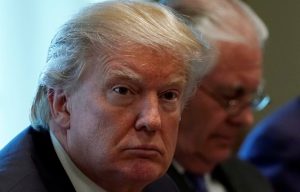
If Donald Trump—as the “king of the deal” and commander-in-chief of the world’s largest armed forces—were to permit an inhumane nation such as North Korea to deploy ICBMs that can strike the continental US, there would be no way he could win re-election. Before long, this matter will reach a settlement in some form or another.
On August 6 Japan time, the United Nations Security Council agreed to additional sanctions against North Korea, but many nations, notably China and Russia, did not put their hearts into enacting them. To that end, in the US, third parties who lend financial or business support to North Korea were hit with “secondary sanctions,” but the understanding that this has not had any decisive result either has been the foundation of the radicalization and polarization referred to above.

Let us assume that of those two options, the former (an “America First” peace agreement) is unacceptable to Japan. We would surely have to object to it. The problem is therefore the latter.
Chinese Cooperation Desired
The primary civilian war hawk, former United Nations representative John Bolton, recently published an op-ed in the Wall Street Journal entitled, “The Military Options for North Korea: Some sort of strike is likely unavoidable unless China agrees to regime change in Pyongyang.” Bolton has recently been called frequently to the White House, and it’s believed that he may be recruited to Trump’s Cabinet.
Bolton criticizes appeasers who never learn after being deceived countless times, and claims that there is no route either than this: “by putting an end to the abnormal North Korean regime, we will also stop the nuclear threat.” Therefore, the only negotiations that carry meaning are negotiations with China to put this plan into action.
It seems that through various channels, the US is conveying to China that if they were to take a leadership role in neutralizing the dictatorship in the North (through assassination, palace coup, forced exile, or other means), the US would acknowledge whatever pro-Chinese puppet regime arose in its place.
If China does not cooperate, stresses Bolton, there is no option other than military action. Specifically, a preemptive strike on the North’s command center, its missile and nuclear weapons factories, launch facilities, submarine bases, and so on. Combined with naval bombardment, penetration by special forces, sabotage, and cyber attacks, a full mobilization could use various methods. But in that case, says Bolton, North Korea’s capacity for revenge on South Korea must be neutralized with overwhelming force.
Total Cooperation With the US
For appeasers, the risk of revenge from the North is reason enough to exclude the possibility of military action. But the war hawks conversely deepen the demands for military force. This may be taken as another aspect of polarization.
Even hawks admit that a regime change, a neutralization of the dictator that does not rely on war, would be the best-case scenario. But even if there is a good chance that China can infiltrate and force a change in government, towards that end the United States must be decisive in preparing a military assault. If this leads to regime change it is welcome; if it does not, it must be carried out as a strategy.
It’s believed that within a year or two, North Korea will be able to launch its nuclear missiles. Along with America’s military actions, Japan, which hosts American military bases, will also become a target for attacks from the North. Accordingly, if a fullscale war is to start, it becomes a matter of life-or-death importance for Japan that it starts before nuclear missiles can be deployed.

The standard response of the Japanese government has been, “We seek careful consideration from the American side on the use of military force.” But, from now on, we need to tell the US: “If you resort to military action, you must do it before the North deploys its nuclear missiles. Japan will offer her total cooperation.” By doing so, we allow ourselves to be included in the planning from an early stage, and the door is opened for active participation.
After 9/11, the Koizumi Cabinet’s foreign affairs minister Yoriko Kawaguchi repeated the criticism that “we must not consider the use of military force against North Korea,” and the American side became irritated and more menacing. In our present situation, where the situation has significantly worsened, we cannot allow ourselves to get caught in that rut.
-191x300.jpg)
Yoichi Shimada is a professor of International Politics at Fukui University, Japan.
(Click here for the original article in Japanese.)
Related articles:
Japan Must Be Prepared to Intercept and Return Missile Attacks
Why the US Should Not Depend on China to Sanction North Korea
3 Reasons China Can’t Stop Exporting Oil to North Korea
Amid North Korean Missile Threats, ‘US Wouldn’t Just Be Sitting Here’
Forget Current Sanctions, Cut Off North Korea’s Oil Supply
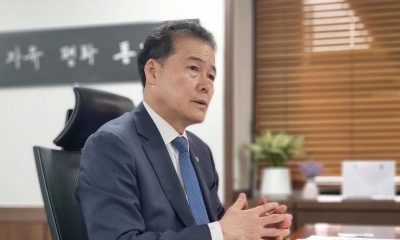

INTERVIEW | Kim Yung-ho is Seoul's Forward-Thinking Unification Minister
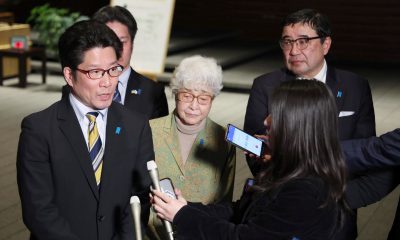

Families of North Korean Abductees Release New Policy: Key Takeaways


EDITORIAL | Work With 1st Japanese ICC President to Pursue Abduction Cases
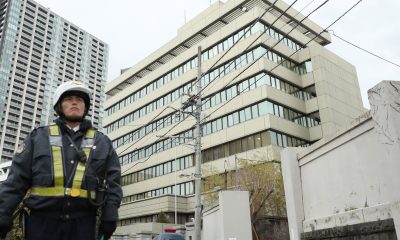

EDITORIAL | End Taxpayer Subsidies to North Korean Schools in Japan
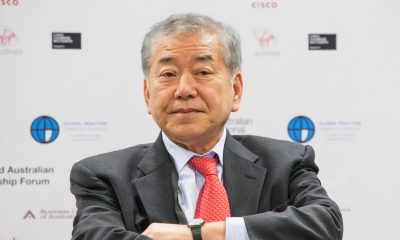

INTERVIEW | Moon Chung-in on Escalating Tensions on the Korean Peninsula
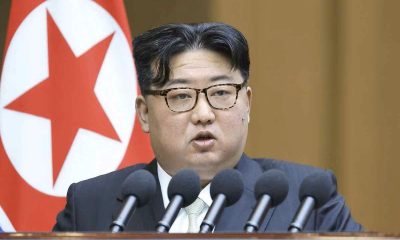

Kim Jong Un Scraps Family Legacy Under New Policy

You must be logged in to post a comment Login